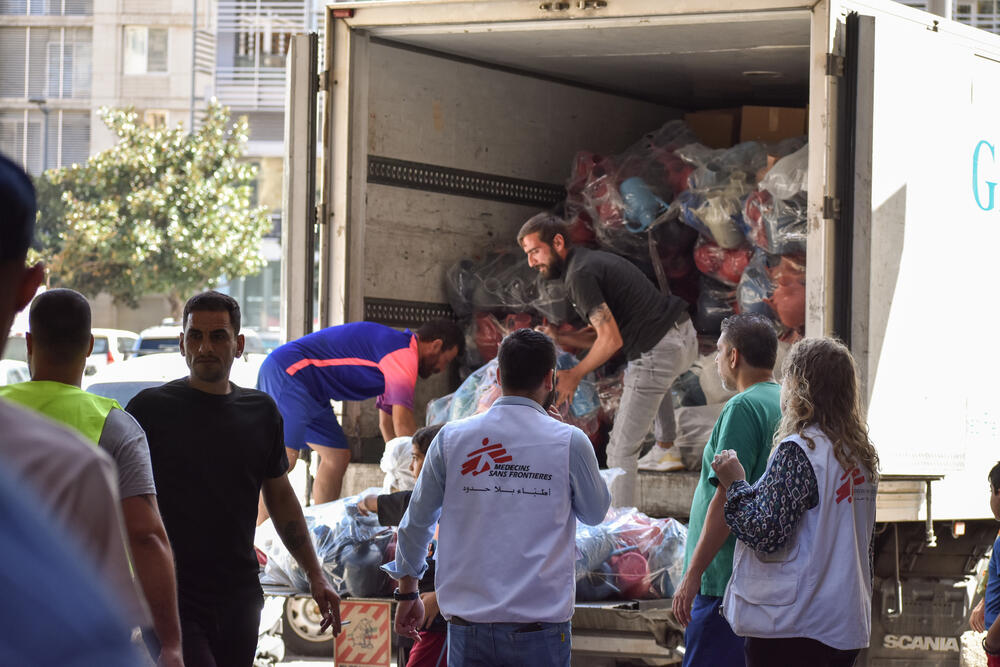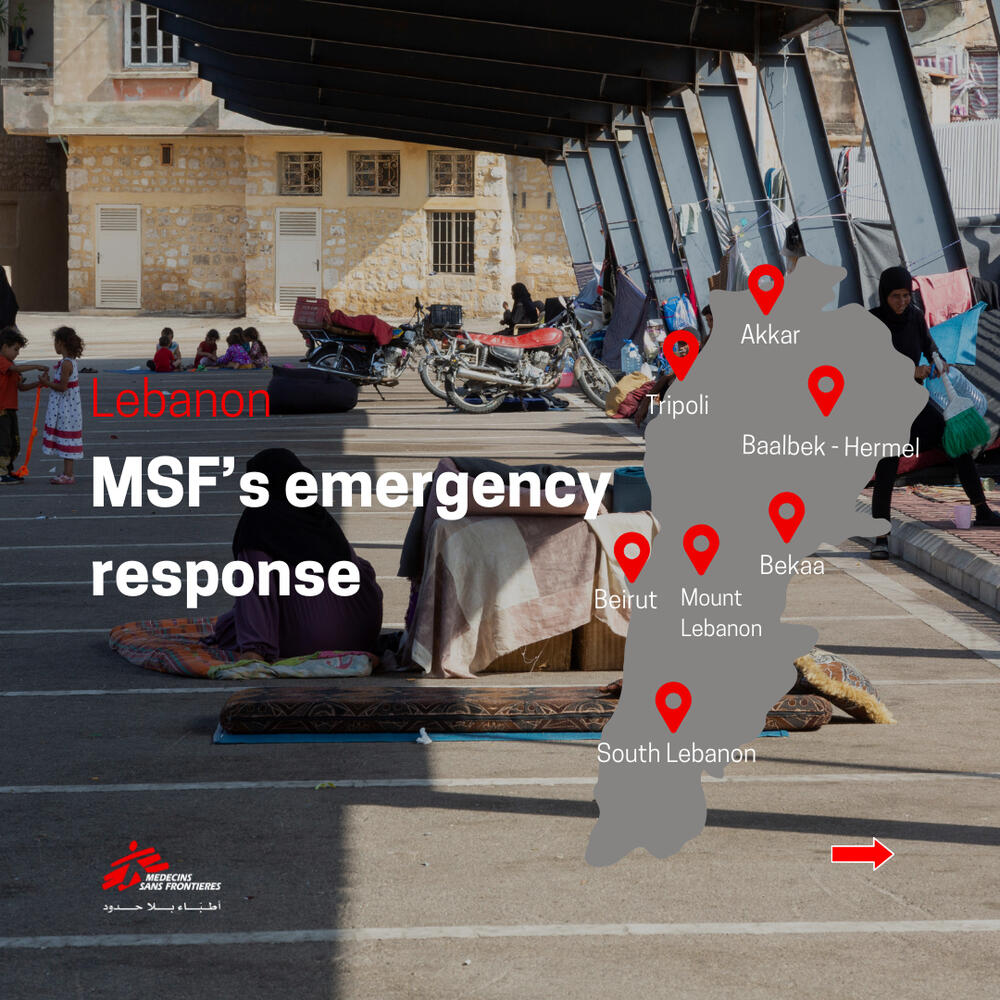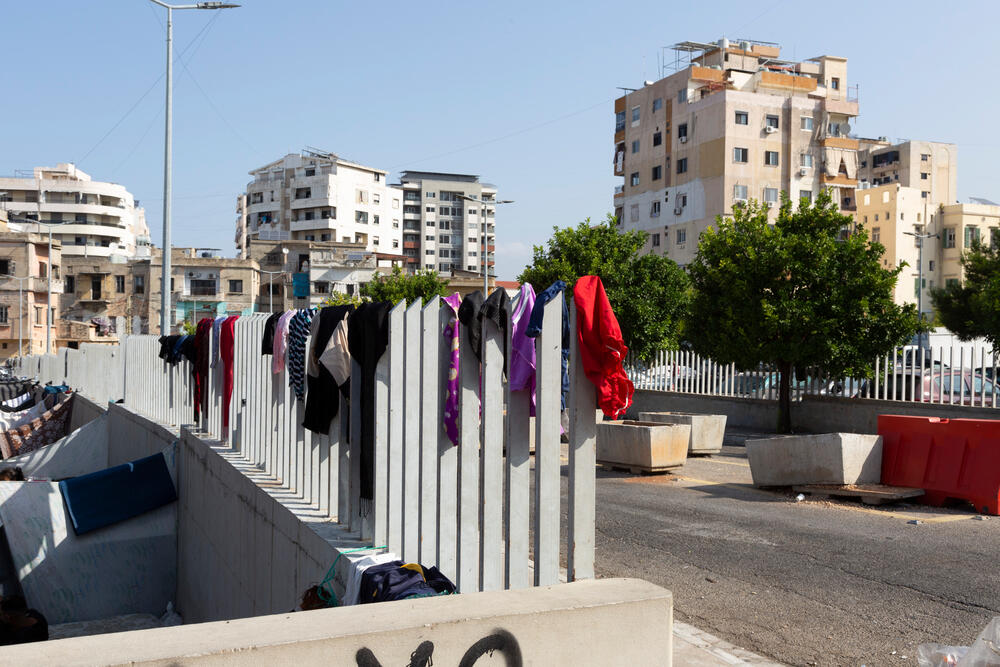Lebanon crisis
The increased intensity of bombings and ground incursions by Israeli forces in 2024 led to massive displacement in Lebanon, where the healthcare system was already struggling to meet people’s needs. The conflict compounds an ongoing humanitarian crisis.
Since the ceasefire agreement announced on 27 November 2024, Israeli forces have continued to engage in military operations in southern Lebanon.
How can I help MSF in Lebanon?
Right now, our teams in Lebanon are providing healthcare to people affected by the conflict. This is only possible because of donations from people like you.
By giving to our general funds today, you will be helping ensure we can respond to emergencies around the world, including in Lebanon.
Please donate today to support our emergency teams.
Click here to learn more about how we spend your money
What is happening in Lebanon now?
Since the onset of cross-border attacks between Hezbollah and Israel on 8 October 2023, Israeli airstrikes intensified, spreading across the country into densely populated areas.
The majority of these attacks occurred since September 2024.
The intense bombardments forced many people to flee multiple times, including since clashes that began in October 2023. Over 90,000 structures – including homes, businesses, agricultural facilities, schools, and water infrastructure – have been damaged or destroyed by the bombardment across the country, according to the United Nations Development Programme.
Major displacement
The conflict displaced more than 896,000 people mainly from South Lebanon, southern Beirut and the Baalbek-Hermel governorate.
The lack of shelters has forced many to sleep in the streets or in unsafe buildings. This particularly increased the risks for minority groups, such as Syrian refugees and migrant workers, who experience discrimination and exclusion.
Following the announcement of a ceasefire, hundreds of thousands of people have returned to their homes and villages in southern Lebanon, while many who saw their homes destroyed by the Israeli bombardment remain displaced. Others are still unable to return home due to the continued Israeli military presence in their towns and villages.
Both returning and displaced communities are facing significant challenges in accessing medical care. This is due to damaged infrastructure, understaffed healthcare facilities and the costs of medical treatment – which is unaffordable to many after they lost their livelihoods during the conflict.
Lebanon: latest news
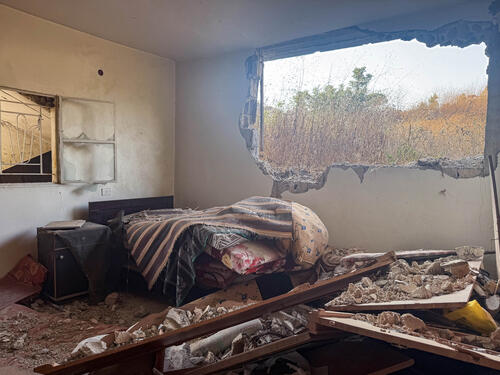
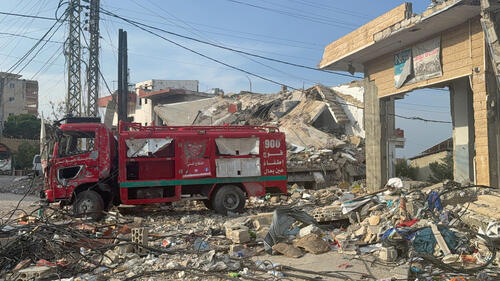
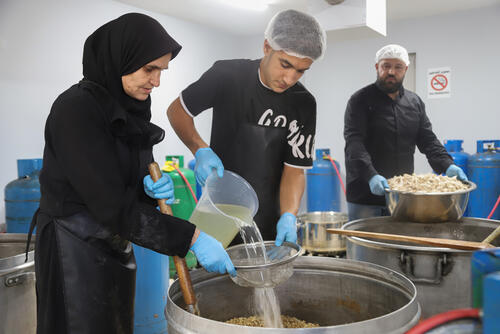
Where is Lebanon?
Lebanon is a small Middle Eastern country on the Mediterranean coast, bordering Israel to the south and Syria to the north and east. It has a population of 5.2 million people, including 400,000 Palestinian refugees and 1.5 million Syrian refugees.
The capital and largest city is Beirut, which is located on a peninsula in west-central Lebanon between the Mount Lebanon range and the Mediterranean coast.
How is MSF responding in Lebanon?
In response to the ongoing escalation of conflict and intense Israeli bombing in Lebanon:
- MSF has deployed mobile medical teams across the country, offering psychological first aid, general medical consultations, medication and mental health consultations.
- Our teams are also distributing blankets, mattresses, and hygiene kits, as well as supplying water by trucks in schools and shelters where displaced people have gathered. We have also been providing hot meals and drinking water to hundreds of displaced families.
- We are running mental health helplines, offering psychological support to displaced and affected people during this time of distress.
- To support hospitals across the country we have donated 7,000 litres of fuel and provided trauma kits. Since November 2023, 10 tonnes of supplies were prepositioned in hospitals and medical facilities across the country.
- We have trained over 400 healthcare workers in trauma care and mass casualty management.
- Our medical teams have also started to directly support the Baabda hospital (Beirut governorate) in its emergency room and one operating theatre, and to the Turkish hospital (Southern governorate) in its operating theatre, emergency room and inpatient department.
Background to Lebanon’s crisis
Lebanon has endured one of the worst economic crises in the world, leaving more than 80 percent of people living in poverty.
The country’s financial collapse has wiped out savings, caused widespread unemployment and the cost of living has skyrocketed.
The healthcare system was already overstretched before the escalation, making it even harder to meet the growing needs of the displaced and injured.
Civil war in Syria put a huge strain on its neighbours, including Lebanon, which now hosts over 1.5 million refugees – the most per capita in the world.
Médecins Sans Frontières/Doctors Without Borders (MSF) has been working in Lebanon since 1976, when we began our response to the 15-year civil war.
